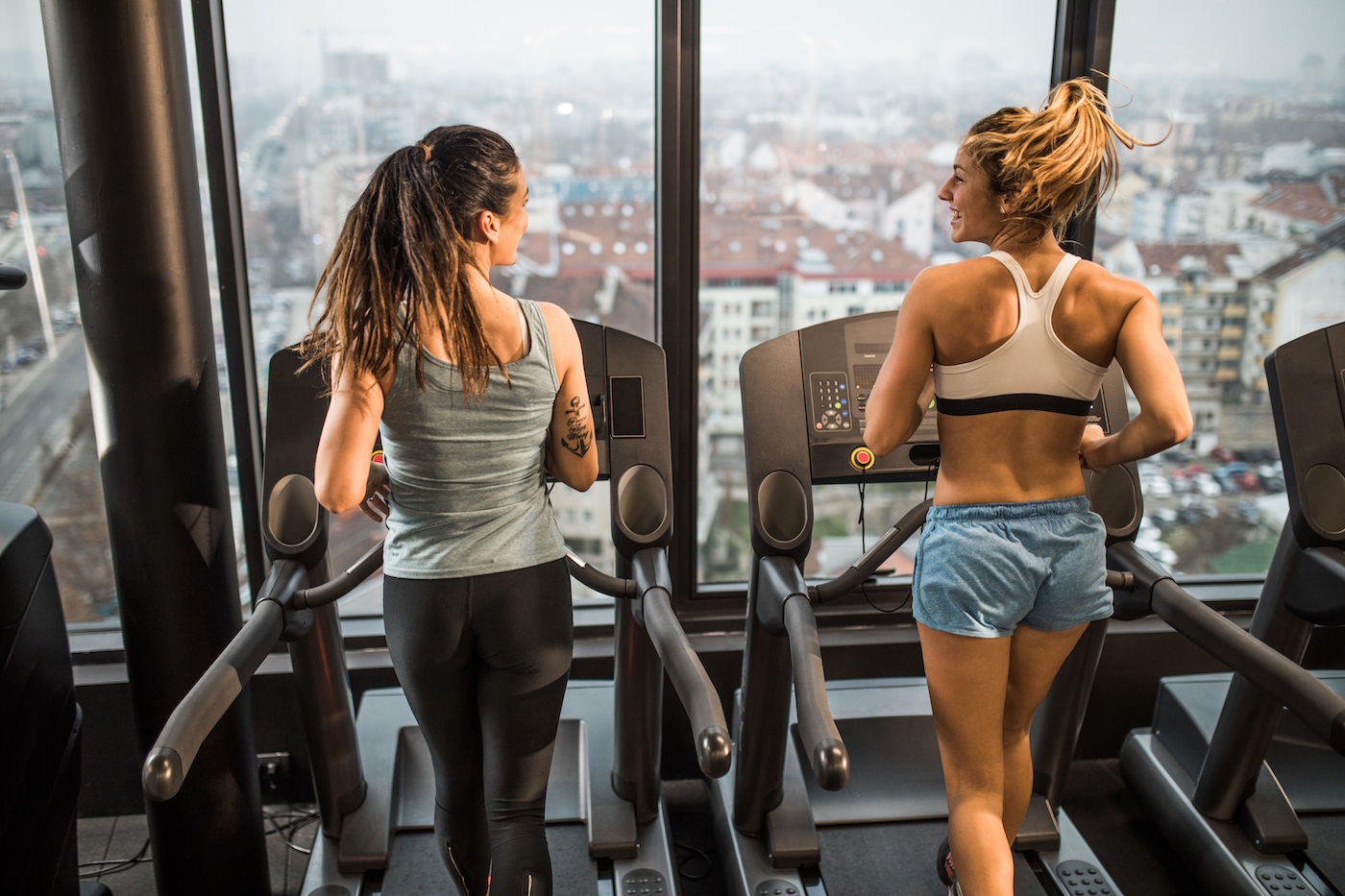
March 04, 2020 at 12:00PM by CWC
In the last few days, fitness enthusiasts have seen their inboxes flooded with e-mails about the “medical grade hand disinfectants” and “extra precautions” that their go-to studios are taking to guard against COVID-19. Orangetheory is encouraging people to skip the high fives, Barry’s will add disposable wipes and hand sanitizers at studios, Equinox is sanitizing its gyms multiple times a day, and SLT is asking patrons to wipe down their machines before and after they use them. By and large, boutique fitness studios across the country are requesting that people “stay home if they don’t feel well,” but there’s one catch: Many cancellation policies aren’t reflecting that.
To their credit, some are. Classpass and Solidcore will both be offering more leniency in waiving late cancellation fees for members who are feeling unwell, and Y7 is encouraging students to contact their studio if they’re too sick to come to class. “If you’re sick, you should have the ability to cancel and not be penalized for it,” says Jason Tetro, microbiologist and author of The Germ Files. “If gyms can provide the assurance that if you’re sick and have to cancel, you won’t be charged for a class, that can increase the confidence that people will only show up when they are healthy.”
Understandably, studios financially incentivize people to show up to classes, but these hard-and-fast rules are contributing to the problem. As of Tuesday afternoon, 100 cases of COVID-19—and nine virus-related deaths—had been reported in the United States. According to the CDC, the virus is mainly spread from person-to-person, “between people who are in close contact (within about 6 feet) of one another, through respiratory droplets produced when an infected person coughs or sneezes.” These droplets can land in the mouths or noses of people nearby, or possibly be inhaled into their lungs. It may also be possible that the disease is spread when someone touches a surface with the virus on it and then touches their mouth or nose.
While this is a cause for concern in any public place, it becomes even more problematic in the context of a gym or fitness studio. “The gym is up there in places where you would have the highest risk for the spread of the Coronavirus,” says Tetro. “You have a lot of people who are exerting themselves, which means they’re breathing a lot and may be sputtering and coughing. And if these people are starting to get sick or develop the infection, there’s a likelihood that they may be spreading that from their lungs into the environment around them.”
ADVERTISEMENT
ADVERTISEMENTKate Spade Autumn/Winter Sale |
Doubling down on sanitation efforts—which many studios have committed to doing—can help protect against the virus, to an extent. “Soap, hot water, and detergent can kill it, so if you’re religiously adhering to the effort of using a disinfectant before and after you use a machine, you’re probably increasing the safety for yourself as well as for everyone else,” says Tetro.
But the best way to keep the virus from spreading at the gym is to keep it from ever getting there. The CDC recommends that anyone who feels sick stays home, and pros echo this sentiment across the board. “The only way to contain the virus is to stay home when you are sick. You aren’t helping the greater good if you spread the illness,” says Erika Schwartz, MD and founder of Evolved Science.” If you get sick stay home—be considerate and don’t infect others.”
And hey studios, in the meantime, how about some leniency?
Skipping the gym in lieu of working out at home? These are our favorite digital fitness apps. And if you want to go the personal training route? Here’s how to find an online personal trainer.
Author Zoe Weiner | Well and Good
Selected by CWC

ADVERTISEMENT
ADVERTISEMENTUp to 30% off Gift Sets |





